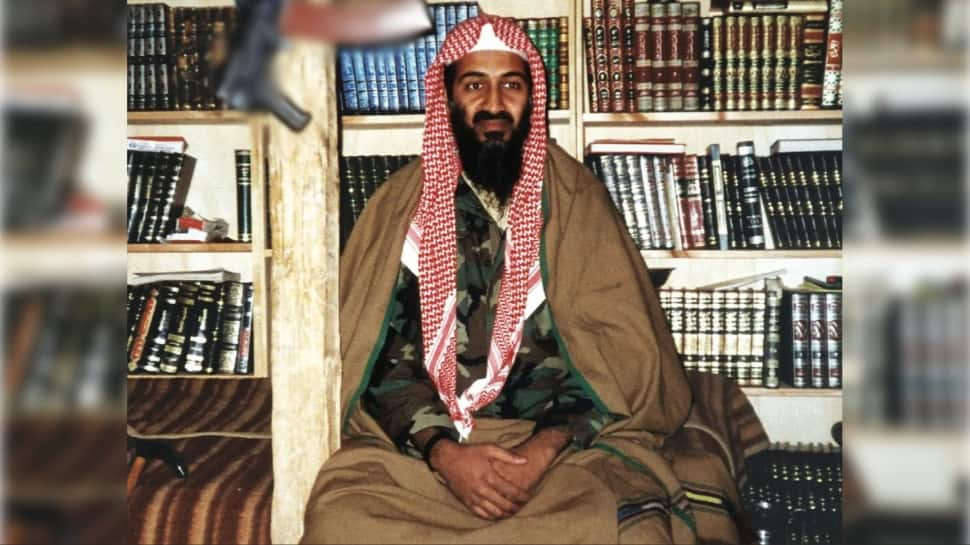In a startling new disclosure, John Kiriakou, a former CIA officer with 15 years of experience and former head of counterterrorism operations in Pakistan, revealed critical details about how Osama bin Laden escaped capture during the US military’s 2001 operation at the Tora Bora mountains in Afghanistan. Kiriakou’s account sheds light on a significant intelligence failure that allowed the architect of the 9/11 attacks to evade US forces and continue to hide for nearly a decade before his eventual death.
Following the September 11, 2001 terror attacks, US troops believed they had cornered bin Laden and the core al-Qaeda leadership in the rugged Tora Bora region. The mountains, known for their complex cave networks, were believed to be the last stronghold of al-Qaeda in Afghanistan. The US military, along with allied Afghan forces, launched a major offensive aimed at capturing or killing bin Laden. However, despite their overwhelming firepower and strategic positioning, the operation did not succeed in trapping the terrorist leader.
According to Kiriakou, a critical factor that undermined the US effort was an insider threat — a translator working for the US Central Command commander was actually an Al Qaeda operative who had infiltrated the military ranks. This translator played a pivotal role in deceiving the US forces at a crucial moment. When American troops demanded bin Laden’s surrender during the siege, the translator used his position to buy time on behalf of al-Qaeda.
Kiriakou explained that bin Laden, through this translator, requested a temporary postponement until dawn, claiming the need to “evacuate women and children” from the caves. Trusting this request, the US forces granted the delay. However, when dawn broke, they discovered that the caves were deserted and bin Laden had vanished. This ruse allowed the al-Qaeda leader to slip through the encirclement unnoticed.
Adding further intrigue to the escape narrative, Kiriakou revealed that bin Laden disguised himself as a woman to evade detection. Under the cover of darkness, he reportedly fled the Tora Bora mountains in the bed of a pickup truck, wearing a woman’s attire. This daring escape enabled him to cross the border into Pakistan, where he remained in hiding for nearly ten years.
Bin Laden’s decade-long concealment in Pakistan ended in May 2011, when US Navy SEALs conducted a secret raid on his compound in Abbottabad. The operation resulted in his death and was a defining moment in the US-led global war on terror.
Beyond recounting the dramatic escape of bin Laden, Kiriakou also exposed the nature of the relationship between US intelligence agencies and Pakistan’s government during the presidency of Pervez Musharraf. When asked about the close ties between American and Pakistani intelligence, Kiriakou did not mince words. He alleged that the US “basically just bought Musharraf,” implying that significant financial incentives were provided to secure Pakistani cooperation.
Kiriakou detailed that the United States offered “millions and millions and millions of dollars” in various forms of assistance, including military aid and economic development funds. This massive influx of support was aimed at ensuring that Musharraf’s administration would permit US intelligence and military operations to proceed with minimal interference.
He candidly stated, “Let’s be honest here. The United States loves doing business with dictators,” highlighting a pragmatic, if ethically questionable, approach to international relations during the war on terror. According to Kiriakou, this approach guaranteed that Musharraf “would allow us to do whatever we wanted to do,” underscoring the transactional nature of the alliance.
These revelations paint a complex picture of the challenges faced in the early years of the US campaign against al-Qaeda. The infiltration of an Al Qaeda operative within US ranks at Tora Bora not only represents a grave intelligence failure but also illustrates the cunning and resourcefulness of bin Laden’s network. The use of disguise and deception allowed the world’s most wanted terrorist to evade capture at a critical juncture.
Moreover, the insights into US-Pakistan relations during Musharraf’s presidency highlight the geopolitical realities that shaped counterterrorism efforts. The necessity of securing cooperation from a key regional player often meant compromising on principles and turning a blind eye to authoritarian governance in exchange for strategic gains.
Kiriakou himself is a controversial figure, known not only for his role in counterterrorism but also as a whistleblower on CIA interrogation and torture practices. His willingness to

